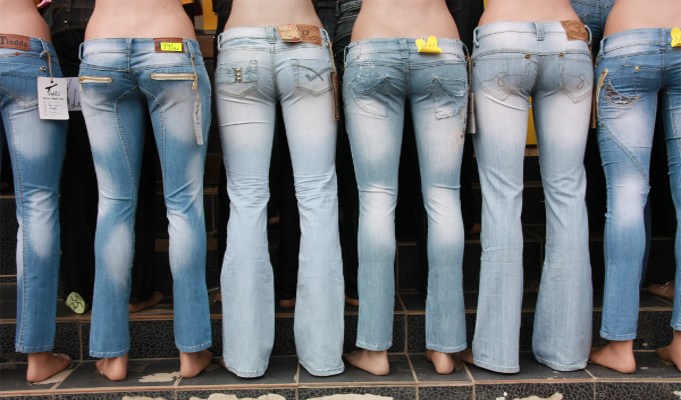The youth-driven denim market promises unmatched value as well as volume growth in the overall Indian apparel market.
The market is projected to grow at a CAGR of 14.5 per cent and reach Rs 39,651 crore by 2021, and Rs 77,999 crore market by 2026. The men’s denim segment comprises 84 per cent of the market while the women’s denim segment and kids’ denim segment comprise 10 per cent and 6 per cent respectively.
Men’s Denim Segment: Men’s denim enjoys the largest share and is poised to grow at a high CAGR of 14 per cent over the next decade. Until a few years ago, denim was popular with men in the urban cities only, however, it has now gradually become popular in the semi-urban and rural markets also. Growing awareness and an increasing affinity for global fashion have led to this development. Denim is considered the most versatile fabric for men with multiple applications over casual wear, work wear and everyday wear.
Women’s Denim Segment: Among Indian women, jeans or denim trousers are the most popular items. Denim is also gaining popularity in athleisure form among women owing to the comfort provided by the stretch denim fabric. This segment is expected to grow the fastest at the CAGR of 17.5 per cent.
Kids’ Denim Segment: This is the smallest segment in the domestic market, but is expected to grow at a high rate primarily due to the availability of the products led by the innovations in the industry for natural, hygienic and flexible fabrics.
1. BEING HUMAN
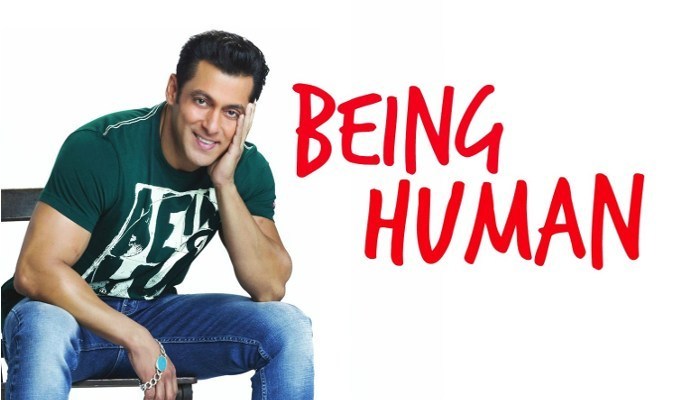
Being Human, a clothing line with a heart, was launched by Salman Khan in 2012. The brand is globally licensed by Mandhana Retail Ventures Ltd., and has a retail presence in over 15 countries with more than 700 points-of-sale. The brand’s combined ethos of celebrity, charity and fashion has been a catalyst in its global reach since its inception in 2012.
Target Group: Being Human’s customer base includes people who believe in international fashion and follow the latest trends. However, they believe in doing good too by helping the brand’s initiatives in healthcare and education. Hence, the ‘Look Good and Do Good’ philosophy.
Product Basket: Denim occupies close to 65 per cent in bottom wear and about 18 per cent overall in the net product basket of the brand. Apart from jeans, the brand’s denim line includes a big range of shirts which include indigo checks, prints and structures. In terms of style, the line ranges from western and work wear inspired to more clean modern versions.
Category Expansion Plans: The brand is planning to launch its range of denim jackets soon.
Key Markets: Being Human Clothing currently operates 55 exclusive stores across 43 cities in India including Ahmedabad, Ajmer, Aurangabad, Bengaluru, Bhilwara, Bhopal, Chandigarh, Delhi NCR, Gwalior, Hyderabad, Indore, Kolhapur, Kolkata, Lucknow, Mumbai, Varanasi and Vijayawada among others. The brand’s primary market is the West and the North region.
Top Retailers: Ahmedabad One, Palladium (Mumbai), Viviana (Thane), VR Mall (Surat), and DLF Promenade (Delhi).
Market Expansion Plans: Being Human is aiming to open at least 20 stores per year. The brand has outlined that 70 per cent of the stores will be launched in Tier -I, -II and -III cities given the demand it has witnessed so far and is aiming at 20 percent year-on-year growth. A few of the cities on the roadmap are Patna, Bhubaneswar, Jamshedpur and Raipur, among others.
Online Presence: Presently, the brand does not have an online selling website of its own. Although it retails on some of the biggest online partners such as ABOF, Flipkart, Fynd, Koovs and Myntra. Approximately 15 per cent of the brand’s total sale is driven by its online presence.
Omnichannel Presence: The brand is in discussions with partners that will help it align its online and physical stores in a seamless manner, that will help the brand to fulfill online orders via physical stores. The brand is also looking forward to launching its online retailing website very soon.
2. DARE JEANS

It all started in 1992 when Paresh Dedhia, a complete newcomer to the field of garments, put in all his energies and ventured into garment manufacturing. He made a humble beginning with just three people but very soon realized the immense scope for branded garments and thus launched his very own bottom wear brand Dare in the year 1995. Dare does a complete justification for men’s bottom wear. It explores formals, casuals and jeans. To ensure the best quality, the fabrics are sourced from reputed mills such as Raymond, Arvind Mills, Vardhaman, Ashima, etc. Standing by it’s service, stock and quality principles, Dare has developed a wide spread network.
Target Group: The brand’s core audience are men from the age of 30 years and above. Its target customers are well settled working professionals.
Product Basket: The company manufactures bottom wear products for men including denims, cotton trousers and blended trousers.
Product Expansion Plans: Dare Jeans is working on manufacturing denims with more cleaner and sophisticated look with bright colour tones and different blends of indigo.
Retail Presence: Dare Jeans is strong footed in the state of Maharashtra and Tamil Nadu. In the near future, the brand is focusing on expansion in the northern sector.
3. DEAL JEANS
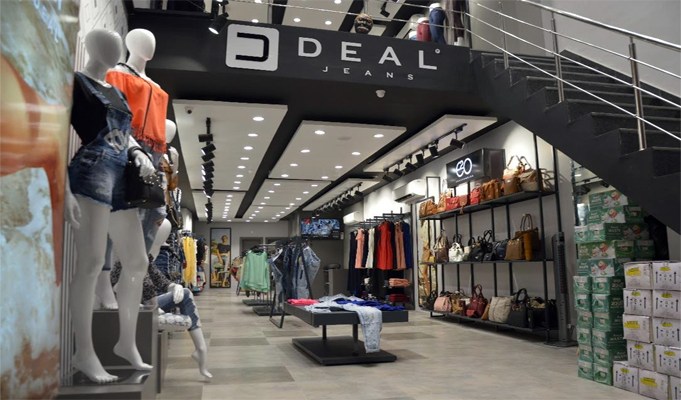
Deal Jeans, a retail venture of Deal Global Fashions Pvt. Ltd., is a fast fashion women’s western wear brand that believes in bringing fresh fashion from every fashion-forward corner of the world to the trend seekers out here. The brand has an experience of over 16 years in the market and is now offering 14 exclusive product categories in around 2,500 artistic styles crafted every year. Deal Jeans believes in empowering every girl or woman’s personality with its clothing, making her much more attractive than the rest of the crowd.
Target Group: Deal Jeans targets women in the age group of 18- 35 years and girls under the age bracket of 6- 16 years, who are mainly fashion seekers with a lot of style, attitude and flair.
Product Basket: Deal’s SS’17 collection is a blend of designer denims, stylish summery tops and party dresses. Around 2,500 artistic styles are designed in captivating colours every year. Taking the trends in consideration, styles are then designed to meet the consumers’ fashionable desires blended with trends followed across the globe. Having a strong hold on craftsmanship of denim wear, 32 per cent of the brand’s collection comprises of designer denims.
Product Expansion Plans: For the coming season, the new denim product range by Deal Jeans would have various new washes, embellishments, fits – slim and skinny, which would be dominating the collection. The distress and torn effect has worked well for the brand this season, and so it has continued this trend for the next season as well.
4. FOCUS JEANS
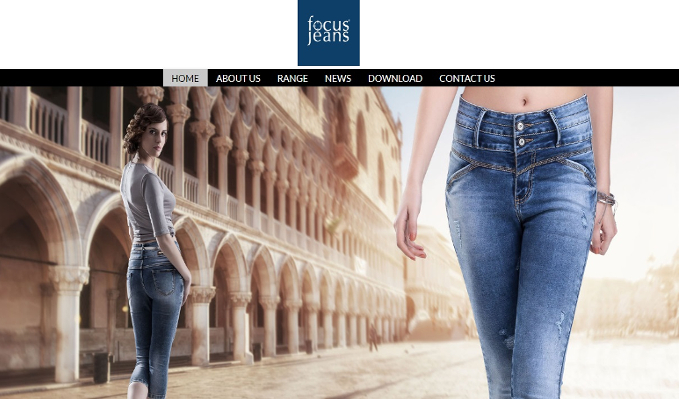
Focus Jeans was launched over a decade back with the force of sheer passion — passion for inimitable style, passion for superlative finish, passion for perfect class. From a very humble beginning to being present in more than 3,000 outlets across multiple states, Focus Jeans is today seen not only as one of the most contemporary and stylish brands at par with any international brand but also delivers better value for money. Each style created by the brand is a reflection of the wearer’s attitude, personality and class.
Target Group: Focus Jeans aspires to dress up today’s women — both young and the young at heart. The target audience falls largely in the age group of 18- 36 years but the brand concentrates more on women aged 22- 32 years. They are both brand image and quality conscious, are in tune with the latest trends and seek good value for money.
Product Basket: The brand’s product basket comprises of more than 150 different styles, shades and fits, catering to each and every need and taste of a woman. The product range is classified into 6 different categories as per style and price segments. They are classified as: Classics, TrueBlues, Premium, Jeggings, Cottons and Hotties (Capris). The product line consists of basic jeans, trendy jeans, ankle lengths, capris, shorts, jeggings and cottons.
Product Expansion Plans: Like every year, Focus Jeans will keep on offering new product line ups, introduce new seasonal styles and finish and increase the width of its price segment on the top as well as the bottom wear.
Retail Presence: The brand is present in mini metros and large and small towns. Focus Jeans retails through more than 2,500 retail outlets and also have a good mix of MBOs and LFS.
Retail Expansion Plans: Focus Jeans is planning to be present in almost 4,000 to 5,000 outlets across the nation within a couple of years. The brand is also looking for distributors and agents nationwide who will partner in its growth for long term.
5. GAP
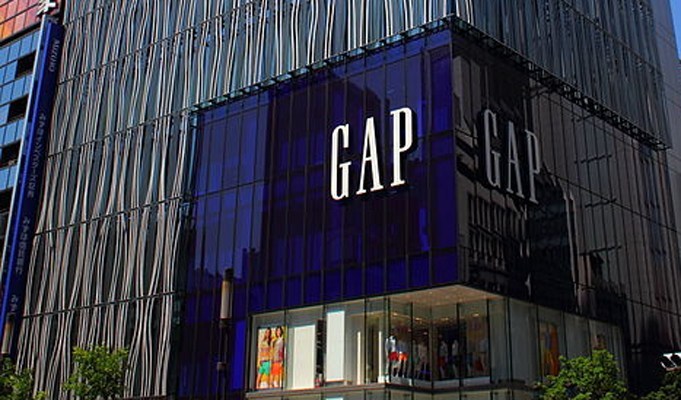
The first Gap store opened in 1969 with a simple idea — to make it easy to find a good pair of jeans and based on a commitment to do more. Over the past 46 years, the brand has grown from a single store to a global fashion business, present in 90 countries worldwide.
Gap entered the Indian market at the right time, when the demand for international brands was growing. Since its introduction to the country 2 years ago, the brand has opened 11 stores in 6 cities. With the launch of Gap on nnnow.com and Amazon, Gap is now available in multiple geographic locations in the country.
Target Group: The iconic American brand stands for an individual who likes to express his/her personal sense of style, while being on-trend. Gap’s primary audience would comprise millennials and young families.
Denim’s Share in the Product Basket: Gap is a clothing and accessories brand and denim contributes to about 20-25 per cent of its core business. Denim bottoms are fast movers for the brand, both across men’s and women’s categories.
Primary Markets: Gap’s primary key markets are in the metros — Delhi, Mumbai, Bengaluru, Chennai. The newly launched stores in Indore and Pune are also catching up fast.
Retail Expansion: Gap continues to strive towards its five year plan of growing the number of stores in the country to 40. The brand already has launched stores in Tier-II cities such as Pune and Indore and are only looking forward to growing in store count.
Online Presence: After the launch of 11 stores, the brand launched itself on gap.nnnow.com. It also has made its collections available on Amazon.in to make shopping easier and more accessible to its customers.
Omnichannel Presence: Gap’s online store on nnnow.com provides the option of click and collect in store, or any preferred delivery address within 48 hours. In-store customers can now indulge in the luxury of endless aisle and order products from other stores in case of stock out or size out. This allows the customers unparalleled access to all Gap stores from one location.
6. JACK & JONES
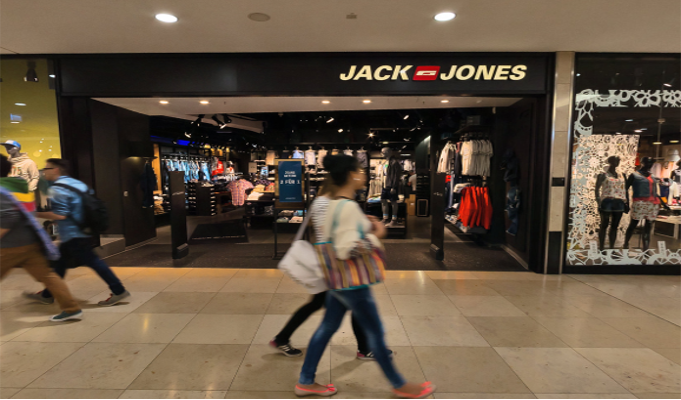
Started in 1990, Jack & Jones is a democratic jeans brand that helps fashion conscious men create their own personal style. Today, Jack & Jones is one of Europe’s leading producers of men’s wear with more than 1,000 stores in 38 countries and also with products being sold by thousands of wholesale partners all over the world. In India, Jack & Jones was introduced in the year 2008. The brand continues to have a high level of expertise when it comes to craftsmanship, quality and design of jeans. Over the past few years, Jack & Jones, through its marketing activities, has acquired a perception of being a disruptive, rebellious and edgy brand.
Retail Expansion: Gap continues to strive towards its five year plan of growing the number of stores in the country to 40. The brand already has launched stores in Tier-II cities such as Pune and Indore and are only looking forward to growing in store count.
Online Presence: After the launch of 11 stores, the brand launched itself on gap.nnnow.com. It also has made its collections available on Amazon.in to make shopping easier and more accessible to its customers.
Omnichannel Presence: Gap’s online store on nnnow.com provides the option of click and collect in store, or any preferred delivery address within 48 hours. In-store customers can now indulge in the luxury of endless aisle and order products from other stores in case of stock out or size out. This allows the customers unparalleled access to all Gap stores from one location.
Online Presence: The brand is present at online portals like Myntra, Jabong, Snapdeal, Flipkart, Koovs, Amazon, etc., apart from its own site.
Domestic Retail Expansion Plans: Jack & Jones continues to look forward to explore opportunities in new markets, especially in Tier -II and -III cities.
Technology Deployment: Technology is positively contributing to almost all functions of the retail business like operations, supply chain management, marketing, customer accessibility, etc. E-commerce has allowed the brand to reach the consumers in places where physical stores are not feasible. Jack & Jones is currently working on its Omnichannel strategy.
Sustainability factor: As a company, Jack & Jones continues to partner with world class and compliant manufacturing units across the world with the intent of offering eco-friendly products to their customers.
7. JEALOUS 21
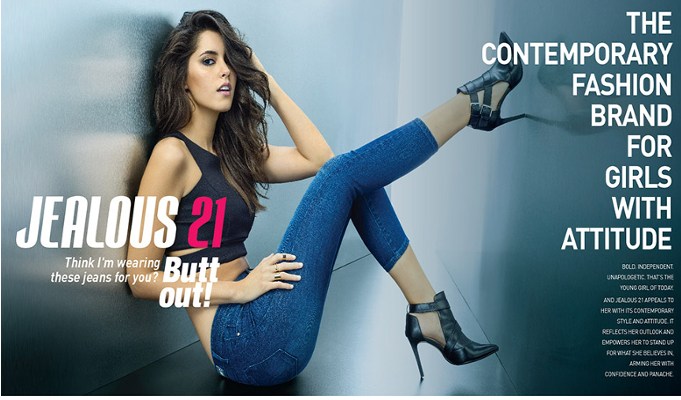
Jealous 21 was created to address the fashion needs of the young Indian girl in the denim wear space. There was an increasing need to create jeans that fit the young Indian body type that is unique and distinct. The brand is a pioneer in creating 3 distinct fits that cater to the different hip to waist ratio, to ensure that every pair of jeans flatters the different body curves and provides almost a sense of perfect customised fit.
Target Audience: The brand’s core audience are young girls between the age group of 18- 25 years who are bold, confident and fashion conscious . It is a brand for the young fashionista of today who has multiple wardrobe needs and is well connected with global fashion trends. Her fashion vocabulary is not restricted to celebrating fashion, but a desire to project fashion in her sense of individual style.
Product Basket: The brand’s product portfolio addresses the wardrobe needs of the young fashionista and allows her to mix and match to create her own style statement. Denim being the core of Jealous 21’s product offering, it comprises 60 percent of the total product portfolio. It also offers a line of other products to create look with like tops, tunics, dresses, jackets and graphic tees.
Category Expansion: Jealous 21 has already expanded its denim portfolio beyond jeans to create more lifestyle categories like tops, tunics, dresses and other fashion wardrobe essentials.
Retail Presence: The brand is available in all potential markets and would continue its journey to reach every possible Indian youth with a desire to flaunt her fashion quotient.
Top Retailers: Jealous 21 is available with most of the top retailers in the country including Central, Brand Factory, Pantaloons, Reliance Trends, etc.
Online Presence: The brand is present in almost all the leading e-tailers of the country including Amazon, Myntra, Flipkart, etc. Having been availble online for a considerable period, the brand sees great promise in the online space, specially considering that the youth customer is predominantly available in this channel. The brand has been consistantly engaging with the youth customers online and has been able to establish a strong connect with a large number of customers.
8. KILLER
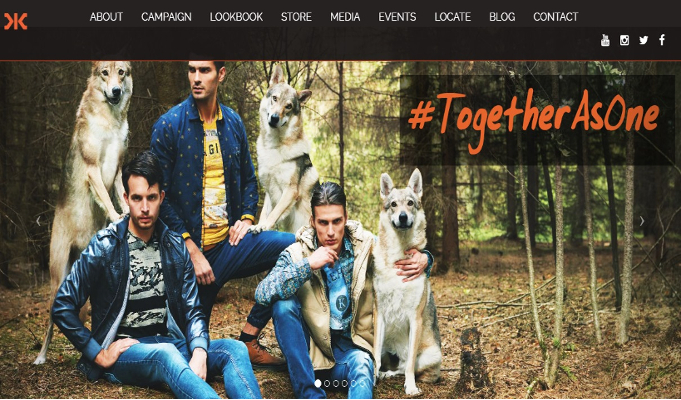
Incorporated in 1989 and based in Mumbai, Kewal Kiran Clothing Limited today is one of the biggest fashion houses in India. The designs of the power brand, Killer are synonymous with the rebellious streak of youth. In 2002, generation gaps were lowered and so were the waist lines. Killer introduced low rise jeans followed by Shreds’ jeans in 2004 for the first time ever in India. Bleached, brushed, ripped, torn and even ridden with bullets, denims were moulded beyond imagination to give a whole new character to them. An authentic denim lifestyle brand, Killer is referred to in the market as a denim authority, known for its best in class products and award winning advertising campaigns like ‘Water Saver Jeans’ and #TogetherAsOne. Today, KKCL has over 308 stores in 183 cities. The group has also won many awards over the years like IAA Olive Crown Awards 2013, India EFFIE Award and so on.
Target Group: The brand caters to men in the age group of 16- 24 years, from Sec AB. Killer targets men who are rebellious in nature, with an attitude.
Product Basket: Killer’s product basket comprises an expansive range of apparel, eyewear, footwear, innerwear, time wear, travel gear, personal care and accessories.
Online Presence: Online portals are a new channel of sales for Killer and it has delivered handsomely for the company in terms of increasing the reach of the brand to its core target group, also delivering sales at the same time.
Technology Deployment: Laser technology which entails huge setup costs is being extensively used at KKCL which helps tremendously in saving water required in the denim manufacturing processes. This is the company’s way of giving back to the society in a significant manner.
9. LEE COOPER
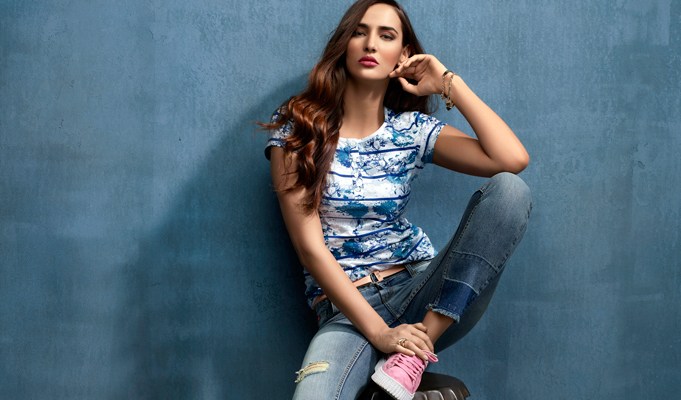
Lee Cooper is an authentic British denim brand which was founded in 1908 by Morris Cooper and established itself as a leading maker of workwear, providing uniforms for the British Troops in WW1 and WW2. Soon it emerged as the preferred denim brand in the UK where, out of every 10 denims sold, 8 were from Lee Cooper. Creating specialist cuts and innovative new styles has always been at the core of the brand thereby generating a great fan base in more than 100 countries across the globe. Innovation, originality, style, attitude and comfort have been the ideologies that have always been at the core, resulting in the creation of jeans such as flexible denim, water resistant denim and reverso jeans. The brand entered India through a license agreement with Future Lifestyle Fashion Ltd. in 2007.
Target Group: Being the original British denim brand, Lee Cooper considers the young and the youthful, who exuberate attitude and confidence at all times as its core target customers. Looking cool without trying too hard is the mindset the brand’s customers live with and hence being on-trend is what matters the most to them.
Product Basket: Lee Cooper, being an on-trend brand, invests a lot of time in understanding the emerging trends and identifying cuts and washes that will excite the customers. The efforts in design, washes, cuts and fits have started showing results helping the brand to be one of the most acceptable brands across men’s, ladies and kids portfolios. Denim is the clear forerunner across all product ranges in men’s, ladies and kids portfolios contributing to nearly 90 per cent business in bottom wear and around 50 per cent in top wear.
Product Expansion Plans: For the next season, Lee Cooper is planning to launch a complete range of classic fashion, on-trend fashion and high fashion denims to ensure that its customers— both men and women find their favourite pick as per the occasion of usage. For women, Lee Cooper have introduced more than 10 silhouettes in denim tops.
Retail Presence: Lee Cooper boasts of an extensive presence in more than 100 countries. In India, the denim brand has a very strong presence in more than 150 cities with its primary markets in Mumbai, Bengaluru, Kolkata, Hyderabad, Pune, Delhi and Chennai. Lee Cooper sells through all key retailers including Central, Lifestyle, Reliance Trends, etc. with majority of its business coming from department stores. The brand has a SIS presence of more than 1,200 doors.
Top 5 Retailers: National department chains like Lifestyle, Central, Reliance Trends, FBB, Shoppers Stop, are the brand’s key retail partners.
Retail Expansion Plans: Lee Cooper had initiated pilot of EBOs in smaller towns over past 1 year and now, the brand plans to rapidly grow its presence of EBOs across select markets.
Online Presence: Lee Cooper understands that the fashion aspiration in Tier -II and Tier -III towns is continuously growing and to cater to their needs, the brand has recently strengthened its presence on various online portals like Jabong, Myntra, Amazon and Flipkart.
Technology Deployment: Lee Cooper strongly believes that technology has been playing a pivotal role in meeting the demands of the consumer while being ‘environment friendly’. It has recently introduced its ozone washing technology that replaces harmful chemicals with alternative ‘drop-in’ chemicals which creates a similar garment effect, while significantly reducing water and energy consumption making it sustainable for the environment. Lee Cooper’s lazer technology too has helped tremendously to replicate the look of the traditional denim with minimalistic human effort and time.
10. PEPE JEANS
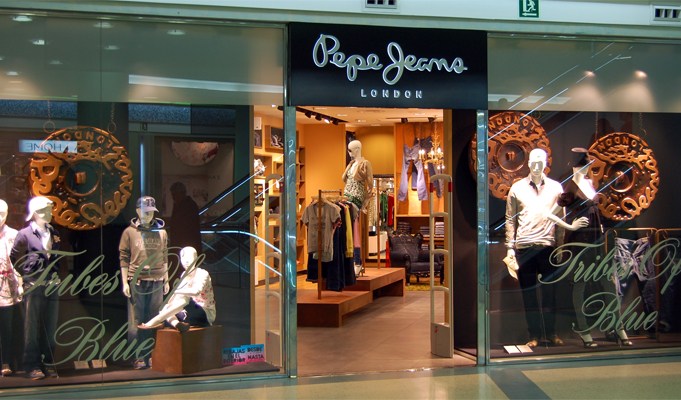
Founded in 1973, Pepe Jeans is a brainchild of the Shah brothers from Kenya— Nitin, Arun and Milan Shah who revolutionized London’s fashion scenario by creating stylish and trendy jeans unlike the customary ordinary looking denim available in those days. In 1989, Pepe entered India and quickly captured the imagination of fashion starved consumers across the country. Pepe Jeans India manufactures a wide array of chic casual wear for men, women and kids. Jeans is the core product of the brand and comes in a variety of fabrics, washes, fits and colours. The brand’s product portfolio also includes a range of casual wear, woven merchandise and accessories.
Target Group: Pepe Jeans is for the young at heart. The brand caters to the fashion forward who desires stylish and trendy denims that fit well and are pocket friendly. The quality, fabric, fit, colour, wash, price, feel, etc., together influence the customer’s purchase decision.
Product Basket: Jeans is the brand’s core product and is very popular and sells extremely well. Jeans come in a variety of fabrics, washes, fits and colours. The brand’s product portfolio also includes t-shirts, flat knits, sweaters, sweatshirts, jackets as well as woven merchandise and accessories.
Retail Presence: In India, Pepe Jeans retails through 214 exclusive brand stores, 371 LFSs and 931 MBOs.
Retail Expansion Plans: Pepe Jeans is currently in the process of opening multiple stores in key Tier -II and -III cities such as Bikaner, Shimla, Siliguri and many more. The brand plans to increase the number of stores in both metro cities and growing Tier -II and -III cities with an increased focus on brand outlets.
Technology Deployment: Pepe Jeans is leveraging technology in a variety of ways, both in terms of front-end and back-end. In the front-end, there is customization that Pepe Jeans started in October 2015, becoming the first brand in India to introduce denim customization services. Pepe Jeans Custom Studio allows customers to step into the design seat and customize their denim in a few easy steps. Currently, the custom studio is available at 4 locations across India.
In terms of back-end, Pepe Jeans has tied up with Style Lumia, a fashion analytics site that helps the brand in in decoding consumer buying needs. With this tool, Pepe Jeans has been able to tap crucial information to predict current fashion in a better way to get the right kind of merchandise and to understand the global trends.



